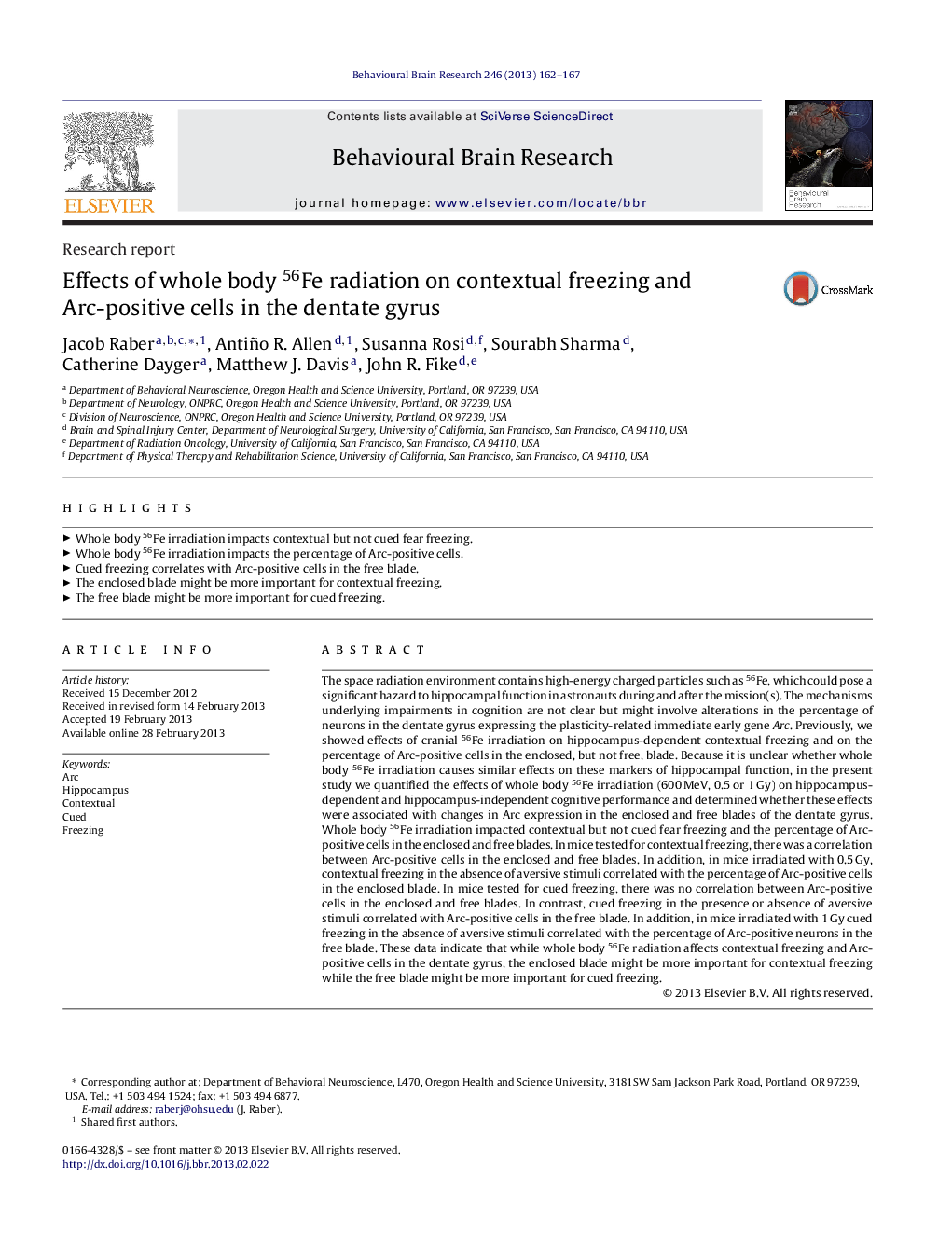| Article ID | Journal | Published Year | Pages | File Type |
|---|---|---|---|---|
| 4312718 | Behavioural Brain Research | 2013 | 6 Pages |
The space radiation environment contains high-energy charged particles such as 56Fe, which could pose a significant hazard to hippocampal function in astronauts during and after the mission(s). The mechanisms underlying impairments in cognition are not clear but might involve alterations in the percentage of neurons in the dentate gyrus expressing the plasticity-related immediate early gene Arc. Previously, we showed effects of cranial 56Fe irradiation on hippocampus-dependent contextual freezing and on the percentage of Arc-positive cells in the enclosed, but not free, blade. Because it is unclear whether whole body 56Fe irradiation causes similar effects on these markers of hippocampal function, in the present study we quantified the effects of whole body 56Fe irradiation (600 MeV, 0.5 or 1 Gy) on hippocampus-dependent and hippocampus-independent cognitive performance and determined whether these effects were associated with changes in Arc expression in the enclosed and free blades of the dentate gyrus. Whole body 56Fe irradiation impacted contextual but not cued fear freezing and the percentage of Arc-positive cells in the enclosed and free blades. In mice tested for contextual freezing, there was a correlation between Arc-positive cells in the enclosed and free blades. In addition, in mice irradiated with 0.5 Gy, contextual freezing in the absence of aversive stimuli correlated with the percentage of Arc-positive cells in the enclosed blade. In mice tested for cued freezing, there was no correlation between Arc-positive cells in the enclosed and free blades. In contrast, cued freezing in the presence or absence of aversive stimuli correlated with Arc-positive cells in the free blade. In addition, in mice irradiated with 1 Gy cued freezing in the absence of aversive stimuli correlated with the percentage of Arc-positive neurons in the free blade. These data indicate that while whole body 56Fe radiation affects contextual freezing and Arc-positive cells in the dentate gyrus, the enclosed blade might be more important for contextual freezing while the free blade might be more important for cued freezing.
► Whole body 56Fe irradiation impacts contextual but not cued fear freezing. ► Whole body 56Fe irradiation impacts the percentage of Arc-positive cells. ► Cued freezing correlates with Arc-positive cells in the free blade. ► The enclosed blade might be more important for contextual freezing. ► The free blade might be more important for cued freezing.
